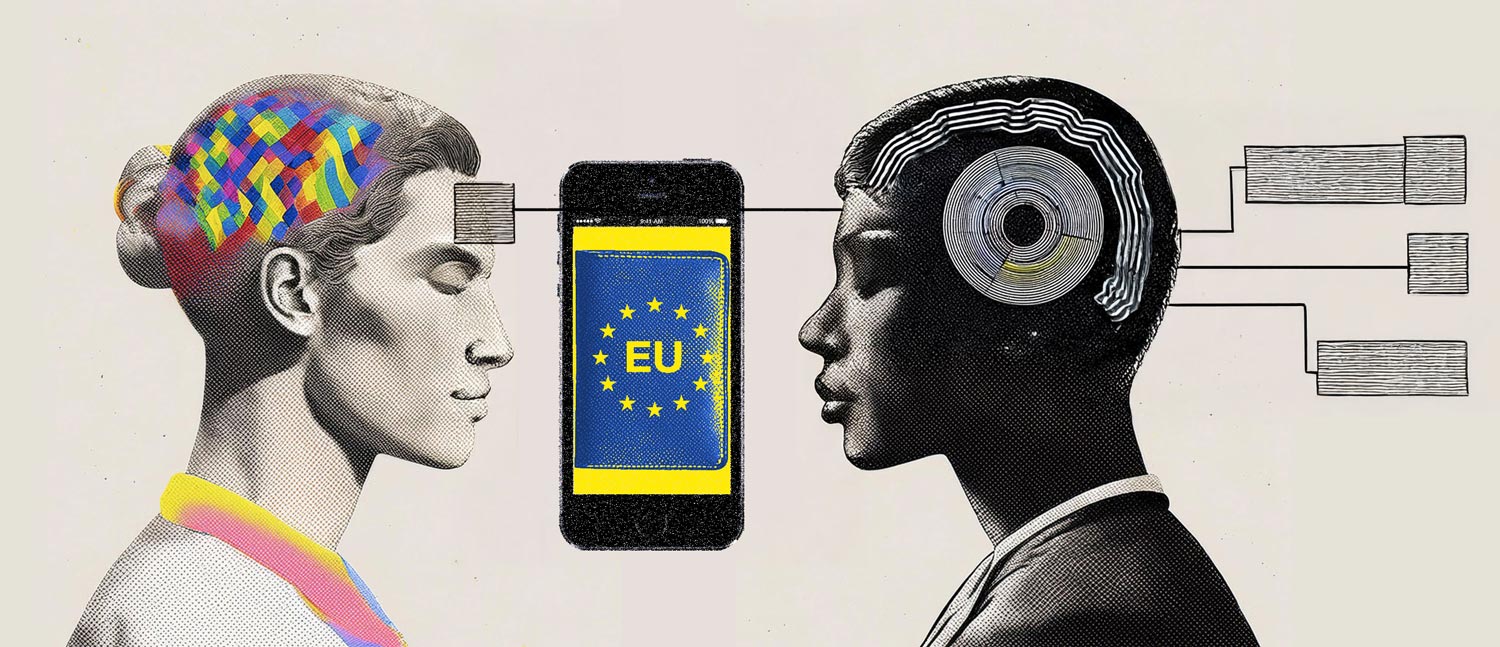Shaping Agencies

What developed over the years as a digital transformation now looks like the training phase before a much larger competition. Now the actual competition starts — and agencies are at the center of the action.
Digital transformation is not a new topic — but the AI layer gives it a completely new dynamic. Companies are under pressure, but so are agencies. For a long time, they were sources of inspiration for creative communication. Today, they themselves are at a turning point.
Because the disruptive power of artificial intelligence not only questions tools — it is changing the entire self-image of the agency world. Classic models are faltering. And that is precisely where a historic opportunity lies.
Why agencies must now think differently.
Marketing has never been easy. But rarely has it been as complex as it is today: Consumers expect seamless experiences across all channels. Companies demand efficiency, performance and innovative strength at the same time. And AI — particularly in the form of specialized AI agents who independently take on tasks and speed up processes — suddenly brings a whole new dimension into play.
What was once considered a balancing act is now technically possible, but also more complex. The classic agency model is no longer enough.
Agencies must evolve — away from pure service providers towards:
- Architects and orchestrators of technical systems
- consultants for agile change processes
- Designing digital experiences where technology and creativity go hand in hand
What the new agency role actually consists of
Experience visions for AI-driven brand management.
Agencies are increasingly developing holistic experience strategies that can be automatically deployed via multi-agent systems and AI-based interfaces. The goal is personalized, converting experiences in real time.
Systemic marketing architectures
Agencies not only build and strengthen brands, but also digital co-pilots for content, data-driven customer relationship management (CRM) and commerce. They help companies build robust, learning AI structures that are constantly evolving.
Technology expertise instead of a modular tool kit
Tool knowledge alone is no longer enough — a deep understanding of technology is required. Competencies such as well-thought-out work with AI inputs (prompt engineering), the development of a sustainable data strategy, legal protection and the development of individual AI agents are now part of the strategic skill profile.
Accompanying transformation instead of planning campaigns
Change is not a project, but a process. Agencies are increasingly taking on change roles and accompanying customers through interdisciplinary, iterative development phases.
Innovation is not a coincidence, but a system
AI is changing the methodology behind innovation. Service design, product development and media planning are becoming increasingly important — supported by data, driven by forecasts, characterized by flexibility.
Hybrid intelligence: How humans and machines complement each other
Advanced language models such as GPT-4 from OpenAI or Claude from Anthropic show amazing cognitive abilities: They plan, abstract, reflect — much like us. And yet they work fundamentally differently.
That is why we need a new understanding: humans and machines must complement each other rather than replace each other. The real strength lies in the combination — in hybrid intelligence.
For agencies, this means: We must learn to think, design and connect with AI — in our teams, with our customers, and in the way we design digital solutions. This not only changes our processes, but also our self-image: We are no longer sole designers, but co-creators in a dynamic system of people, machines and brands.
Europe's opportunity: agencies as drivers of transformation.
Europe has the best conditions: a broad agency market, a strong culture of innovation and a growing digital infrastructure. New innovation ecosystems are emerging in many places — from GovTech hubs in Estonia to AI initiatives in Paris or Helsinki. While other regions rely on unregulated progress, European legislation creates clear frameworks for trustworthy AI with approaches such as the AI Act.
In addition, there is Europe's cultural diversity, which promotes creative approaches, a wealth of perspectives and localized solutions. In an AI world that is increasingly reliant on nuances, ethics, and cultural contexts, this is exactly what is becoming an advantage. European agencies should actively use this diversity — and translate it into hybrid systems.
What is currently missing is more networking, more exchange — and above all more courage to redefine roles. ACT-Europe can play a central role here: as a platform for best practices, continuing education and co-creation. For a European agency community that not only uses AI, but also actively shapes it.
Conclusion: Design together now, instead of waiting.
Agencies, people and AI agents will share the same stage in the future. If you don't just want to watch, you have to design now — with new roles, processes and offers.
The good news: Hardly any other sector has more experience in change than the agency world.
Now is the time to take advantage of that advantage — not just to keep pace, but to move ahead. With courage, attitude and the confidence that technology can be a tool — not a substitute, but an amplifier. And that creativity remains the bridge between humans and machines.
Get in deeper now
You can find out exactly how AI agents use open standards such as the Model Context Protocol (MCP) to gain real competence and what this means for agency models in the latest Deep Dive on the Shape Agency website:
https://shape.agency/insights/ki-deep-dive-mcp
Note: This article was written in co-creation between humans and AI. The conceptual structure, attitude and content come from the author, who assisted the AI with fine-tuning and structuring. The perspectives presented are based on personal experiences and observations from practice — and reflect a subjective but deliberately practical view of current change in the agency world.





